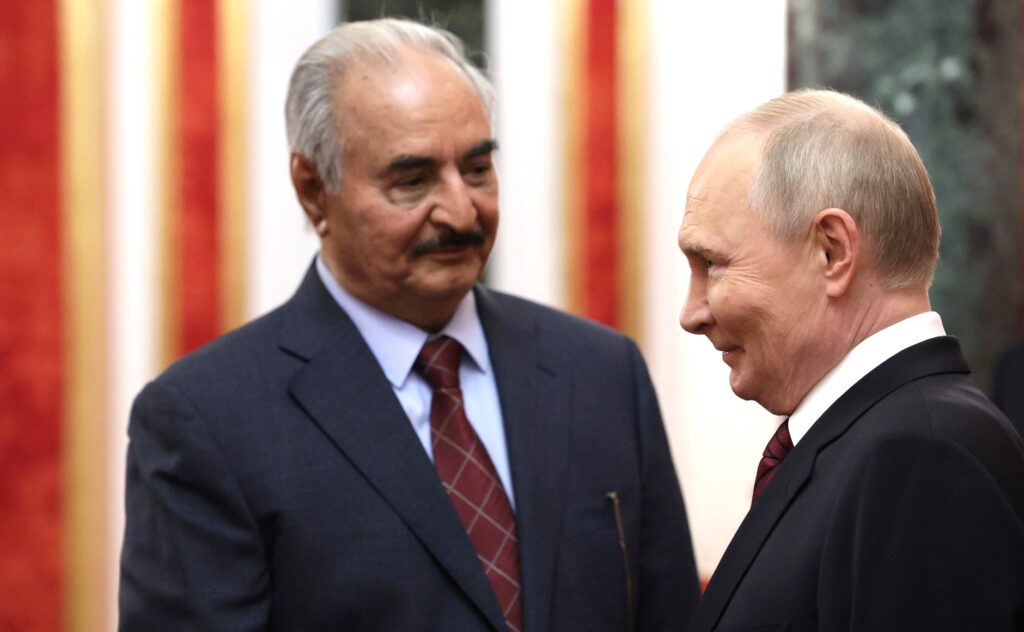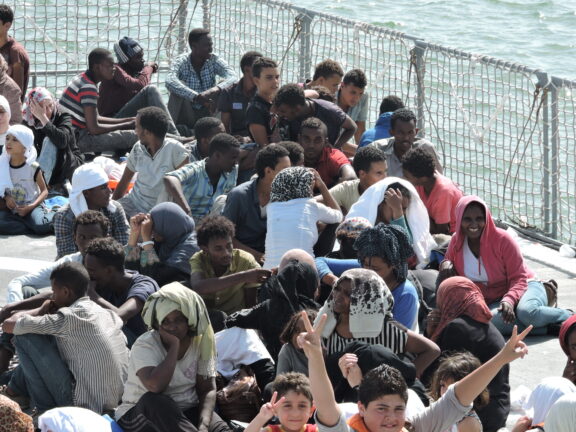Russian interests in the North African country pose a grave threat amid a new surge of migrants departing from Libya to Europe. Last week, EU’s delegation was expelled from Benghazi in a humiliating manner and Italy and Greece now call for prompt action warning that situation could soon develop out of control.
Two thousand people in just seven days: such was the influx of irregular migrants on the southern shore of Crete last week. In broader perspective, there was a seven per cent increase in irregular crossings in the central Mediterranean in the first part of this year. Almost all of these people departed from Libyan shore.
“It is an emergency situation that requires emergency measures (…) We are suspending the processing of asylum applications for those arriving in Greece from North Africa by sea,” said Greek Prime Minister Kyriakos Mitsotakis recently.
Libya is a sort of emergency that Europe must address together / Antonio Tajani, Italian Minister of Foreign Affairs
The move prompted fears in Italy that migrants would now be pushed to different routs towards Southern Italy. Antonio Tajani, Italian foreign minister, has described Libya as “a sort of emergency that Europe must address together”.
Humiliating expulsion
All this comes just a few days after Commissioner for Internal Affairs and Migration Magnus Brunner, accompanied by ministers from Italy, Greece, and Malta, was declared “persona non grata” in East Libyan port Benghazi. The officials had arrived there to discuss migration-related issues with Libyan politicians. The meeting, however, had not even started and the EU’s delegation was forced to leave the country.
The order to leave was issued by the Government of National Stability which has its headquarters in Benghazi. It is a rival ’government‘ of the internationally recognised Government of National Unity that operates from Tripoli (Libyan de jure capital). The Government of National Stability controls the city of Benghazi and Eastern Libya, though in reality the power is held by the military dictatorship of Khalifa Haftar. The Government of National Unity controls western and central portions of the Libyan coast.
You might be interested
Keep an eye on Tobruk
In a statement describing the expulsion of EU’diplomats, the Benghazi government cited “flagrant contravention of established diplomatic norms and international convention,” as well as “violation of Libyan domestic law”.
The reality, however, could be more complex. Mr Haftar, de facto leader of Eastern Libya, is a close ally of Moscow and many in the EU fear that the Russia’s influence in the unstable North African nation is growing. Russia keeps supplying arms to Eastern Libya and is apparently looking for a place to establish a new naval base substituting Syrain ports that were de facto lost after the fall of Bashar al-Assad’regime in December 2024. According to Italian media the northeastern port of Tobruk seems to be at the top of the list.

With such an influence, Russia could easily use illegal migration originating in Libya as a hybrid threat to Europe. In a similar manner it has already done in the case of Belarus and other countries.
“The political and security situation in Libya is critical,” Commission’s spokesperson said after Mr Brunner with his delegation had been expelled from Benghazi. He added: “Considering the geopolitical consequences, the political engagement by the EU and member states is crucial.”











